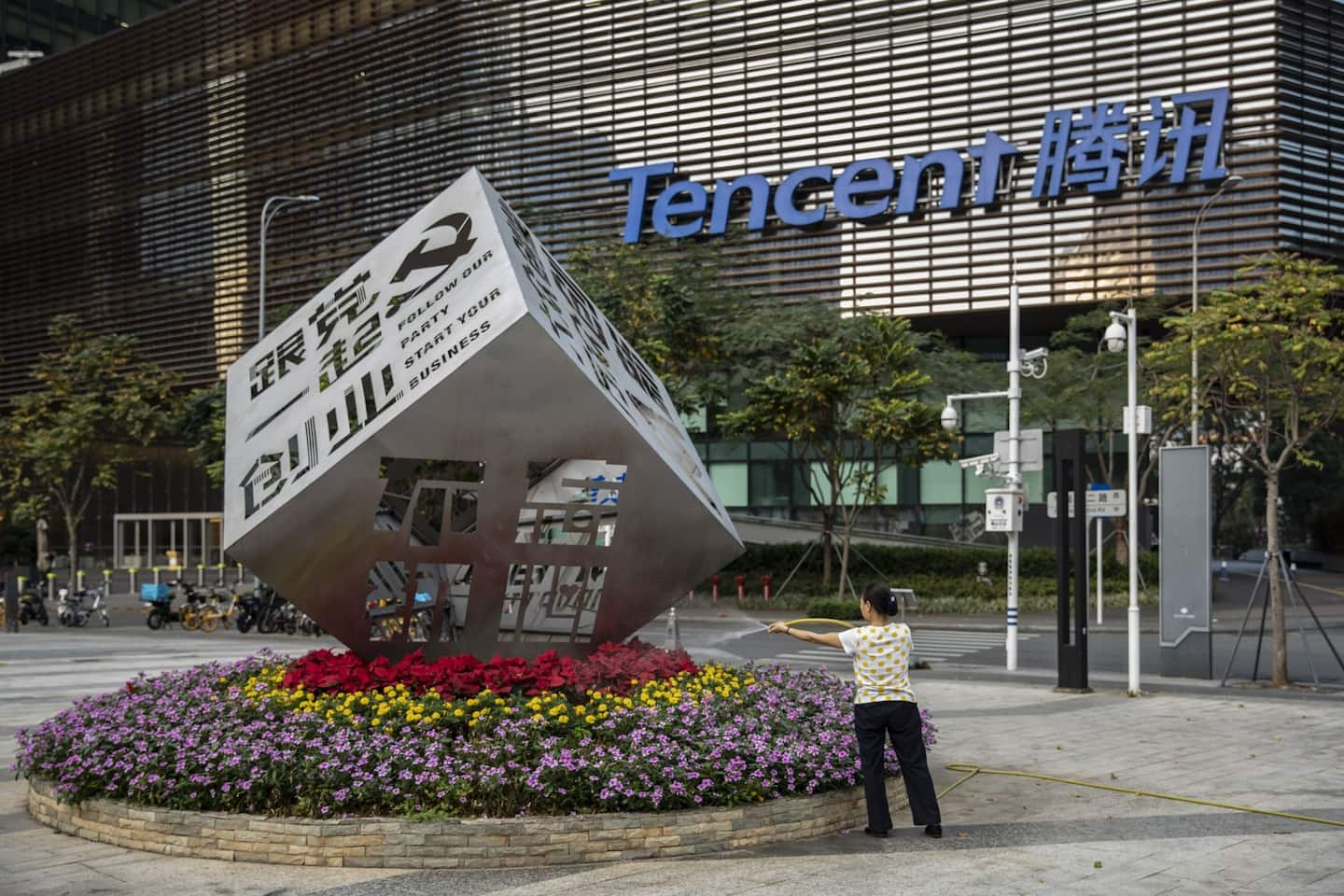California lawsuit against Chinese tech giant raises a thorny question: Can the plaintiffs remain anonymous?

The plaintiffs are a mix of U.S. and Chinese citizens residing in California, who filed the suit anonymously because they fear Chinese authorities will seek to punish them or their family members in China, according to their lawyer, Times Wang of North River Law in D.C. If Tencent learns their identities, Chinese authorities could easily pressure the company to turn over the information, Wang said in an interview.
Lawyers for Tencent at Gibson, Dunn & Crutcher LLP in San Francisco dispute this, and argue that they can’t prepare a defense without knowing who is suing the company.
The case, and the clash over anonymity, are forcing the U.S. legal system to try to decipher China’s often opaque economy, where the ruling Communist Party has strong sway over corporate entities.
“Obedience to the party is necessary for survival,” Wang said. “When the regime comes calling, what can you possibly do to resist?”
WeChat is a popular communication tool in China that is also used by millions of Mandarin speakers around the globe. The Trump administration tried to ban the app last year, saying it posed threats to national security because it collects “vast swaths” of data on users and offers the Chinese Communist Party an avenue for censoring or distorting information.
A federal magistrate in San Francisco temporarily halted the proposed ban in September over First Amendment concerns, in response to a lawsuit filed by a different group of U.S. WeChat users. In February, the Biden administration requested a pause in the legal proceedings so it could review the proposed ban.
Inside China, the authorities require Tencent to heavily censor the app, which is known domestically as Weixin. Chinese authorities have also used the app to monitor political dissidents and other critics, some of whom have been detained by police or sentenced to prison for their communications.
In their lawsuit in California, the six anonymous plaintiffs allege that the censorship and surveillance have spilled into the United States via the app. A seventh plaintiff in the lawsuit is named: the nonprofit group Citizen Power Initiatives for China (CPIFC), based in D.C. and founded by the dissident Yang Jianli. The lawsuit says the plaintiffs are suing in California because Tencent’s U.S. subsidiary has its principal place of business in Palo Alto.
Among other things, the lawsuit alleges that Tencent has turned over California WeChat users’ data and communications to Chinese authorities, suspended and blocked their accounts after they have posted material critical of China, and profited by using their data and communications to improve the company’s censorship and surveillance algorithms.
The plaintiffs’ allegations are similar to those that WeChat users in North America shared with The Washington Post recently, complaining of being censored and locked out of their U.S.-registered accounts after posting information critical of China.
Tencent has declined to comment on the lawsuit but says the company “operates in a complex regulatory environment, both in China and elsewhere,” and complies “with local laws and regulations in the markets where we operate.”
Shortly after the California plaintiffs filed their case, Tencent’s U.S. lawyers requested their WeChat user IDs so they could prepare a defense, Wang said.
In an emailed reply, Wang laid out his concerns. Even if the plaintiffs and defendants struck a protective order requiring Tencent to keep secret the plaintiffs’ identities, the Chinese authorities could still force the company to turn over the information, Wang argued.
Among other things, China’s 2017 National Intelligence Law requires all citizens and organizations to assist the intelligence authorities, he noted in a March 19 email and asked Tencent to explain how it would handle this obligation.
Matthew Kahn, a lawyer for Tencent at Gibson Dunn in San Francisco, replied that the court would eventually “require plaintiffs to identify themselves in some fashion to Tencent.”
“You have identified no reason beyond speculation to believe the harms laid out in your email would ever occur,” Kahn added. “We also are unaware of any authority for the proposition that the mere existence of a non-California government’s power to conduct investigations is sufficient basis to hide the identities of plaintiffs from defendants in a California court.”
The “default rule” in the U.S. legal system is that parties cannot litigate anonymously, said Mark DeBofsky, a Chicago attorney who frequently writes about litigation issues.
In rare cases, courts have allowed anonymous plaintiffs to proceed with cases, DeBofsky said, such as when a plaintiff’s mental health is at issue or when a plaintiff could suffer physical harm by disclosing their identity. But anonymity in those cases usually means that the litigant’s identity is kept secret from the public, not from defense attorneys, DeBofsky said.
The judge in the WeChat case faces “a difficult decision” in the anonymity dispute, he said. The plaintiffs’ worries about retaliation sound valid, he said. “If I were in the position of the plaintiffs, I would be very worried about my family’s safety,” he said, but he added that he also understands the defense lawyers’ need to determine whether “the people who brought the suit actually have standing to bring the suit.”
Wang said his clients are “not trying to be difficult.”
“The fear is real, and it’s because they understand that the notion we are comfortable with here in America, about the separation between the private and public sphere and the rights companies have against the government in the U.S. — they understand, having grown up [in China], that it just doesn’t work that way there.”






